Engaging Men and Boys; Disengaging Violent Masculinities
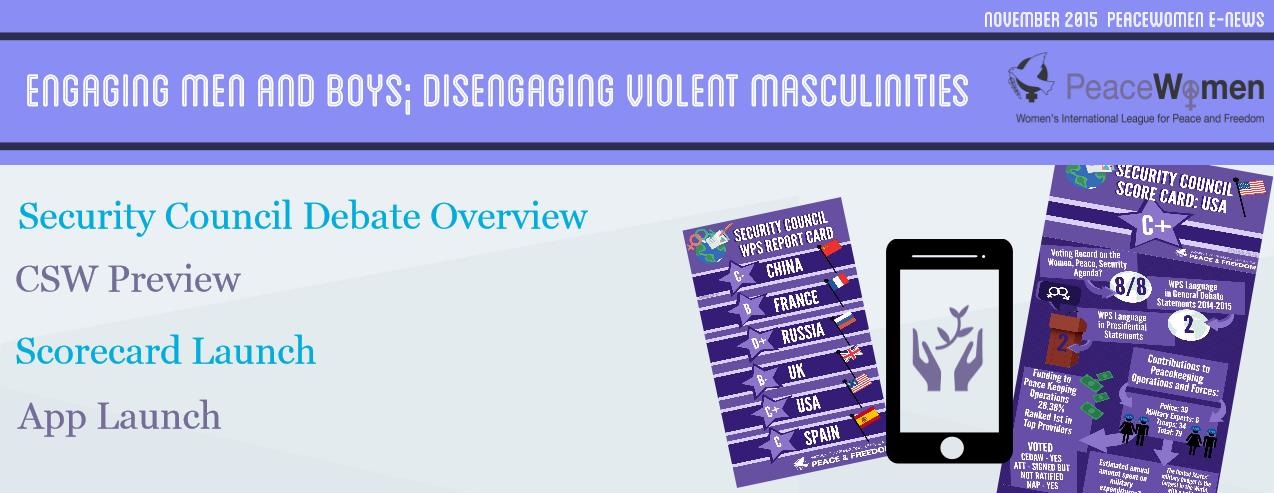
Engaging Men and Boys; Disengaging Violent Masculinities
By: Anthony Keedi, ABAAD
When I was a child, I loved playing “Super Heroes.” They were strong and powerful, using their power to fight evil. Whether they flew, used martial arts, or guns, they all had an element of violence to them. That was alright, though, as they were always fighting evil. I even remember thinking as a little kid that “they don’t hit just anyone, only the bad guys”.
In essence, I learned as a young boy that there was such a thing as “righteous violence.” I learned that if one has power and uses that power, through violence, to combat evil, it is not only ok, but admirable. I was not the only boy to learn this lesson. The use of masculine folk heroes who use violence to fight “evil” can be found in every single culture and all through history. From Beowulf and Gilgamesh to the Teenage Mutant Ninja Turtles, young men and women are raised to place honor and gratitude for those (especially men) who use violence to fight “evil”.
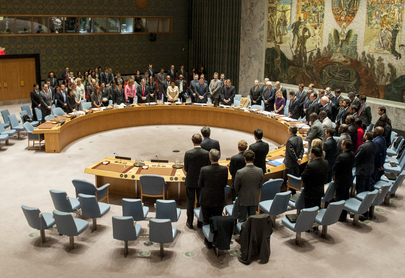
"Security Council Observes Moment of Silence for Victims of Beirut and Paris Attacks" (UN Photo)
As a young adult, when forced to answer my own understanding of when it would be justified to use violence, I was forced to ask the question, what is “evil”? Unlike the fictional “heroes” of my childhood, there is no clear cut character whose sole desire is to destroy the world. In fact, I started to realize that “pure evil” did not exist. In reality, most of my altercations had more to do with miscommunication; with seeing my “enemy” as a member of “the other group”, with differing opinions, etc. I was forced to come to the conclusion that most of the fights I had gotten into, only resulted in more conflict and personal cost for myself and my opponent, as well as come to learn the importance of true empathy. If I had taken the time to understand the other person, or even try, there were a million different and more effective solutions to our conflict then violence.
There is no such thing as “righteous violence” In fact the “evil” we identify and fight today might also see us as “evil”. They might be acting on their perception of historical injustices. They may come from lands that are underdeveloped; their people are being exploited for their country’s natural resources (e.g. oil, blood diamonds, conflict metals and minerals). If we can justify the use of violence when combating evil, yet we cannot clearly define evil or at least be consistent in our definition, then anyone can commit violent acts as long as they can convince others that they do so in the name of peace.
The only undeniable truth pertaining to violence is that it begets violence. What can be consistently expected in response to the use of violence is: retaliation, escalation, abuse, death, economic insecurity (except for those selling the weapons), depletion of resources, lost opportunities for peace and development, and an increased vulnerability to personal and structural violence for members of that society who are already greatly vulnerable and at risk (whether they be refugees, racial and ethnic minorities, people with non-heterosexual sexual orientations, or women and girls).
It is for this reason that we must begin to ask better questions of how militarised and violent our societies are becoming. For decades, feminist writers, leaders, and organisations have written about non-violent conflict resolution. They have championed an approach that is not based on dominance, but on co-existence. Most importantly, they have written and preached about the prevention of violent conflict, so that we do not have to bear witness to the devastation and personal anguish that follows attacks such as the ones that have taken place this year alone in Nairobi, Paris or in areas of the world (like my own, Beirut) where such violence is so habituated that there is barely a response at all (both globally and/or nationally). We have to believe invest in these leaders and models.
Evil people do not give birth to violence. Violence gives birth to evil people.
Security Council Debate Overview
By: Federica Dall’Arche
“Prevention is not something to be turned on and off.” - Secretary-General Ban Ki-Moon
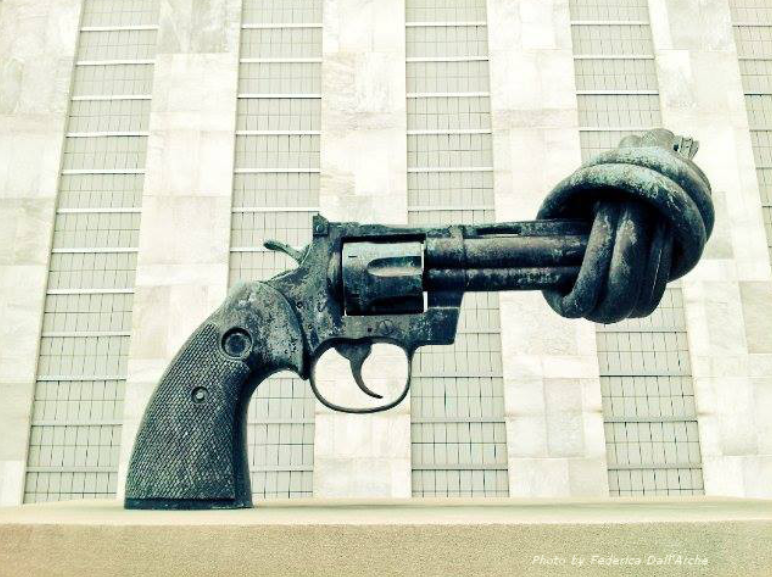
Photo by: Federica Dall’Arche
On Tuesday (17 November 2015) the Security Council, under the presidency of The United Kingdom, Secretary of State for International Development, Justine Greening, held a ministerial-level open debate on the maintenance of international peace and security with a focus on the root causes of conflict. The initial title and focus of the debate was set to be: “peaceful societies and conflict prevention”, directly referring to Goal 16 of the 2030 Agenda for Sustainable Development, but it was changed possibly to address concerns brought forward by the Russian Federation about discussing the 2030 Agenda outside the General Assembly. The ministerial debate was opened by Secretary-General Ban Ki-Moon’s remarks, during which he expressed his deepest condolences to the Governments and people of France, Iraq, Lebanon and Russia for the loss of lives in the most recent terrorist attacks. Briefings by the Permanent Representative of Sweden, Olof Skoog, in his capacity as Chair of the Peace Building Committee (PBC) and by the President of the Tunisian Confederation of Industry, Trade and Handicrafts and member of the Tunisian National Dialogue Quartet winner of the 2015 Nobel Peace, Ouided Bouchamaoui followed.
On 05 November, the president circulated a concept note (S/2015/845), inviting participants to consider the undeniable connections between peace, security and development when exploring the root causes of conflicts. She stressed the linkages during her statement within the, comparing development without stability and peace to a house built on the sand.
For a more detailed analysis of the ministerial- level open debate on the maintenance of international peace and security with a focus on the root causes of conflict, please visit our United Nations Security Council Debate Watch page.
Sneak Peek: 2016 Commission on the Status of Women (CSW)
By: Marta Bautista
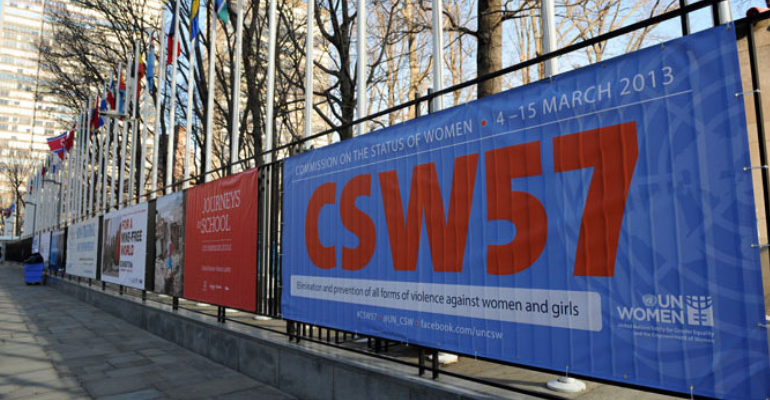
Photo by: UN Women
The 60th session of the Commission on the Status of Women will take place at the United Nations Headquarters in New York from 14 to 24 March 2016. This year, the priority theme is "Women’s empowerment and the link to sustainable development" and the review theme is "The elimination and prevention of all forms of violence against women and girls".
PeaceWomen and WILPF are excited to once again participate in CSW 60. We have already submitted a statement, calling for "feminist foreign and domestic policy that ensures local action on demilitarization and women’s human rights for transformative change" as well as for "a change in priorities that invest in women’s human rights, divest from militarism, and safeguard political economies of gender justice and peace rather than economies of inequality and war.” In order to stay updated on all the events, highlights, and outcomes, make sure to follow PeaceWomen’s getting ready and preparing for its participation. We have already created the CSW 60 page in which we will keep you updated of all the events, highlights and outcomes of CSW 60. And don’t forget to follow us on Facebook and Twitter!
Will you be at CSW? Let us know! PeaceWomen is not funding CSW participants this year, but will facilitate WILPF coordination among any self-funded or other participants. (Please contact Marta Bautista: marta@peacewomen.org).
Please note that the deadline to sign up for a CSW 60 parallel event is 11 December 2015 -- register and apply online here.
For more information on CSW 60, see the UN Women website here >>
For more information on CSW 60 and to sign up for a parallel event, see the NGO CSW website here >>
For information on WILPF’s engagement last year (CSW 59), this year (CSW 60) and otherwise, see our website here >>
The 2015 PeaceWomen Security Council Scorecard
By: Charlette Lopez and Federica Dall’Arche
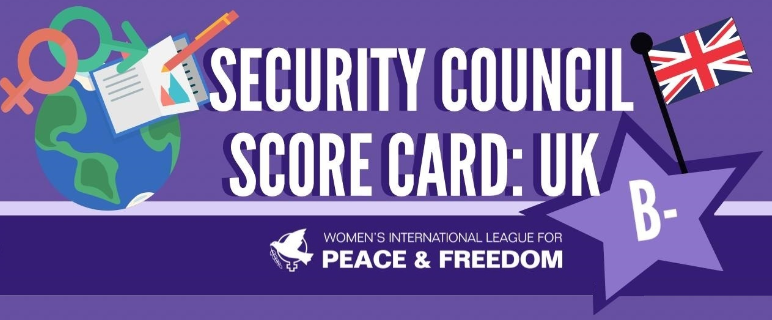
Infographic Image created by Cynthia Sularz
As part of our work to mobilise concrete actions for the implementation of policies that reflect a holistic understanding of the Women, Peace and Security (WPS) Agenda, PeaceWomen has designed a Security Council Scorecard as part of its work to hold governments accountable.
The scorecard evaluates actions and engagement on Women, Peace and Security agenda by key member states in 2015. It includes the five Permanent Members of the Security Council (ADD) as well as Spain, who was president of the Council in October 2015. The scorecard provides a systematic evaluation of action taken through quantitative and qualitative indicators addressing six major categories: Women’s Political Participation; Military Presence and Dedication to Disarmament; Prevention, Protection, and Relief/Recovery; Security Council Action; Country Action; and Funding and Financing.
Overall, this scorecard reiterates that despite normative commitments, action is still critical to move to accomplishments. It is critical for member states who want to be leaders on Women, Peace and Security to step up their action on prevention and implementation, especially on demilitarisation and disarmament.
For more information about Scorecard, please visit the PeaceWomen website.
PeaceWomen Presents: App Re-Launch for 2015
BY: Cynthia Sularz

Cover Photo by Cynthia Sularz
At the fifteenth anniversary of UNSCR 1325, PeaceWomen is proud to present our newly updated mobile application on Women, Peace and Security! This app will be essential toward continuing the conversation and action on Women, Peace and Security.
The app are includes all 8 Resolutions on Women, Peace and Security, including newly adopted United Nations Security Council Resolution 2242 (2015). It also includes an updated list of National Action Plans, monthly action points, and updates from PeaceWomen’s online WPS information hub with over 20,000 resources. Download the app and use it to strengthen your work today!
WILPF INITIATIVES:
WILPF International Op Ed on terrorist attacks
WILPF U.S. Statement on Recent Attacks and Refugee Crisis
WILPF October Report
UNSCR 2242: Infographic and Resolution Text
COP21 has started - Where to find WILPF
Creeping militarism: a critical challenge for gender justice and peace
POLICY BRIEFS/REPORTS:
Policy Brief: Counterterrorism Measures and their Effects on the Implementation of the WPS Agenda
Report of the Special Rapporteur on the situation of human rights defenders
Gender Audit of the Peace, Security and Cooperation Framework for the Democratic Republic of Congo and the Region (2015)
Positive Peace and Gender Equality
Analysis of the Global Study
Towards an effective approach for women, peace and security: Highlights from an exploratory study on marginalised women’s social cohesion and economic resilience in Afghanistan and Kosovo
EXTERNAL INITIATIVES:
Monthly Action Points on Women, Peace and Security, November 2015
16 Days Campaign
The Cora Weiss Fellowship for Young Women Peacebuilders
PA-X: Peace Agreements Database
The Better Peace Tool
South African men pledge to stand up against abuse
Global Gender Gap Index Report 2015
